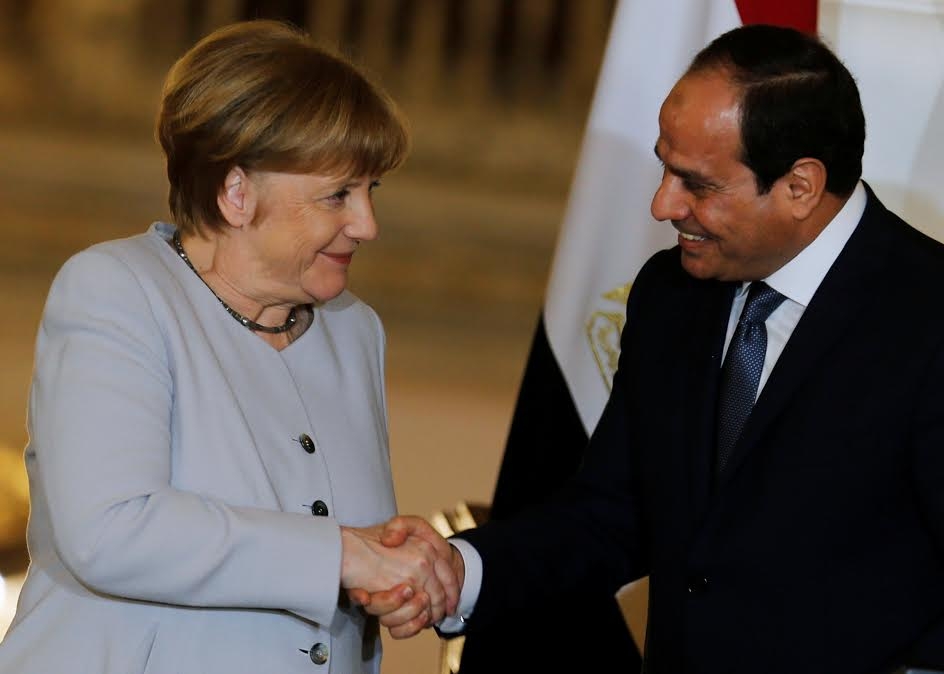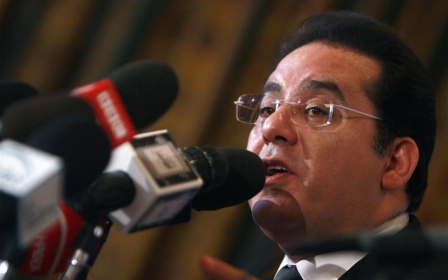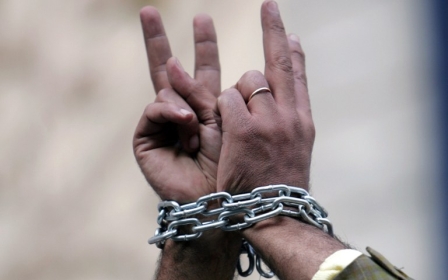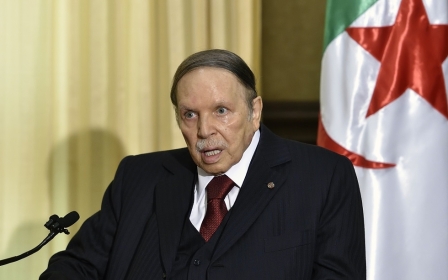Merkel under fire for 'uncritical engagement' with Egypt during visit

German Chancellor Angela Merkel came under fire on Thursday, after a meeting with Egyptian President Abdel Fattah al-Sisi in which the two discussed migration and trade but did not focus on the issue of human rights.
Merkel held talks with Sisi in Egypt before visiting Tunisia, as part of a broader push to boost German investment in Africa, slow the flow of migrants into Europe and increase intelligence-sharing to combat extremism.
She had also planned a trip to Algeria last week, but it was called off after President Abdelaziz Bouteflika fell ill.
However, she has faced criticism at home and abroad for meeting Sisi, who's government is accused of widespread human rights violations and targeting opponents from across the political spectrum.
Joachim Schroedel, a German cleric who has worked in Egypt for more than two decades, expressed anger at Merkel's assertion that Egyptian Coptic Christians were in a "very good situation," refuting her description of Egypt as a "stabilising force in the region."
"What does the chancellor want to accomplish with such genuflection?" he told the German mass-circulation Bild newspaper.
The European Council Foreign Relations in an open letter also condemned Merkel’s endorsement of Sisi's government:
"Uncritical engagement with Egypt is not realpolitik: it is not based on a realistic assessment of the dangerous mixture of repression and non-inclusive governance that currently prevails. Germany, and Europe, should engage with Egypt as a plural and vital country, not just with its regime."
Human Rights Watch noted that Egypt had largely "banned protests, imprisoned tens of thousands of people, often after unfair trials, and outlawed the country's largest opposition group, the Muslim Brotherhood."
The organisation also branded sexual violence against women as an "epidemic," after at least 91 women were raped during the popular-backed military coup that brought Sisi to power.
'Dodgy' migration deal
The nature of the migration deal Merkel is trying to cement with her North African counterparts has also been come in for criticism.
"Ensuring safe and swift returns of Tunisians and Egyptians who are not in need of protection is legitimate, as long as the procedures are fair," said Judith Sunderland, a Europe and Central Asia director for Human Rights Watch.
"It's another thing entirely to pursue dodgy deals that could trap asylum seekers and migrants from elsewhere in countries like Tunisia and Egypt that cannot guarantee decent treatment or meaningful access to asylum."
Middle East Eye propose une couverture et une analyse indépendantes et incomparables du Moyen-Orient, de l’Afrique du Nord et d’autres régions du monde. Pour en savoir plus sur la reprise de ce contenu et les frais qui s’appliquent, veuillez remplir ce formulaire [en anglais]. Pour en savoir plus sur MEE, cliquez ici [en anglais].




